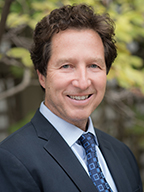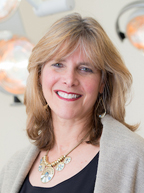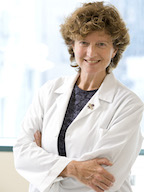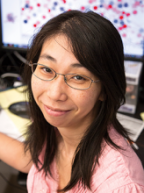How to Apply
Faculty Mentors
Translational
- David M. Jablons, M.D.
- Laura J. Esserman, M.D., M.B.A.
- Michael J. Campbell, Ph.D.
- Kimberly Kirkwood, M.D.
- Jeroen Roose, PhD
- Christina Yau, PhD.
- Liang You, Ph.D.
- Julie Saba, MD, PhD
Regulatory Sciences
- Laura Van 'T Veer, PhD
- Kathy Giacomini, PhD
- Deanna Kroetz, PhD
- Barbara Koenig, PhD, RN
- Nola Hylton, PhD
- Brian Shoichet, PhD
- Ida Sim, MD, PhD
Health Services & Implementation Science
- Emily Finlayson, M.D., M.S.
- Elizabeth C. Wick, M.D.
- Julie Ann Sosa, M.D., M.A., FACS
- Louise Walter, MD
- Andrew Auerbach, MD
- Kim Rhoads, M.D., M.P.H
- Alex Smith, MD, MPH
- Maren Scheuner-Purcell, MD, MPH
- Leslie Wilson, PhD
Fellows
Current Fellows
- Nisha Parmeshwar, M.D.
- Alexis K. Colley, M.D., M.S.
- Nathan R. Brand, M.D.
- Kelli Ann Ifuku, M.D.
Past Fellows 2021-2022
- Laura L. Barnes, M.D.
- Nathan R. Brand, M.D.
- Patricia Conroy, M.D.
Past Fellows 2020-2021
- Alexa Glencer, M.D.
- Joseph Lin, M.D.
Curriculum
Trainee Portal
T32 Trainee Experiences
Faculty Mentors
Translational

Professor of Surgery
Chief, General Thoracic Surgery
Nan T. McEvoy Distinguished Professor of Thoracic Surgical Oncology
Ada Distinguished Professor of Thoracic Oncology
Program Leader Thoracic Oncology
Director, Thoracic Oncology Laboratory,
UCSF Helen Diller Family Comprehensive Cancer Center
Translational Co-Lead: Dr. Jablons is Director of the Thoracic Oncology Lab focusing on molecular therapeutics, molecular diagnostics, systems biology, systems genetics, and bench-to-bedside drug discovery. His lab employs state of the art technology such as next generation sequencing, synthetic chemistry and 3Dcomputer simulation for drug discovery and leverages one of the largest thoracic tissue banks in the world. Training experience: Dr. Jablons has mentored nearly 100 students, post docs, fellows, and junior and midlevel faculty for the past 25 years at UCSF, many of whom have since achieved significant advances in lung cancer research and clinical care.
T32 trainees can avail themselves of numerous ongoing oncology projects in the Thoracic Oncology Laboratory, including pre-basic science and novel target drugs research, actual small molecule by design testing (in vitro and in vivo), clinical trial development and execution.

Professor of Surgery and Radiology
Division of Surgical Oncology
Chief, Section of Breast Care Surgery
Alfred A. de Lorimier Endowed Chair in General Surgery
Director, UCSF Breast Care Center
Translational Co-Lead: Dr. Laura Esserman, is internationally recognized for her leadership of the ground-breaking I-SPY2 clinical trial and as an advocate for de-escalation of treatment for DCIS, and the initiation of the virtual preference pragmatic personalized screening trial (WISDOM) seeking to personalize the approach to screening. Her work in breast cancer spans the spectrum from public policy issues to basic science and the impact of both on the delivery of clinical care. Dr. Esserman has mentored 36 post-doctoral or clinical fellows during her career. She developed and runs a post-baccalaureate program that has trained 123 students over the past 15 years, most of whom have gone on to careers in medicine.
Dr. Esserman’s broad research interests provide exceptional opportunities for multidisciplinary training across the three themes, through clinical trials and biomarker studies on screening, prevention and treatment of breast cancer, many of which focus on improving healthcare value. Another fundamental and scalable effort is the implementation of systems to integrate care and research.
Professor of Surgery
Division of Surgical Oncology
Dr. Campbell’s research is focused on characterizing the immune landscape within tumors and its relationship to indolent or idle breast cancer (and DCIS), as well as investigating changes in immune infiltrates in the context of therapy. His lab has developed multiplex immunofluorescence staining panels and multispectral imaging protocols for various immune cell populations. Dr. Campbell has mentored 15 pre-doctoral students and 8 clinical fellows over the past 17 years at UCSF, all of whom have gone on to careers in medicine or science.
Trainee opportunities in Dr. Campbell’s lab include participation in studies characterizing the tumor immune microenvironment in cancer and pre-cancerous lesions and identifying immune-related biomarkers of response to therapy, as well as pre-clinical studies evaluating new immunotherapeutic strategies. He has access to the over 1500 patients with serial samples from the I SPY-2 study, with the opportunity to predict response to novel and immune targeted treatments

Professor of Surgery
Division of Surgical Oncology
Dr. Kirkwood specializes in treating pancreatic cancer as well as tumors of the upper gastrointestinal tract. She is an expert in applying minimally invasive techniques to treat abdominal tumors. She focuses on improving outcomes for patients after pancreas surgery and on understanding how pancreatic cancer develops at a cellular level. Dr. Kirkwood has mentored 43 predoctoral trainees and 24 postdoctoral fellows, and these individuals have been named first authors on 47 of her most recent 53 peer-reviewed publications. The majority of postdoctoral fellows pursue additional training in surgical oncology and hepato-pancreatobiliary surgery.
Trainees in Dr. Kirkwood’s lab generally focus on pancreatic cysts and pancreatic cancer. Her lab houses an extensive and clinically-annotated pancreatic biorepository, access to fresh tissue and biological fluids (cyst fluid, blood), and experimental mouse colonies. Dr. Kirkwood’s long-standing collaboration with the department of pharmaceutical chemistry/experimental therapeutics program, enables trainees to pursue projects with laboratory and clinician scientist co-mentors that have a proven track record of success.
Professor and Vice-chair, Anatomy
Dr. Roose’s research focuses on the impact Ras kinase signals have on cell fate decisions in health and disease, spanning the continuum from basic science to pre-clinical investigations. Dr. Roose also runs an organoid disease to biology unit connected to UCSF's CoLabs offering a rich training environment for staff, students, postdocs, and fellows cellular and translational biology and associated methods. Dr. Roose takes on several leadership positions in the UCSF graduate schools and has trained many graduate students and postdoc who have gone on to successful academic and biotech positions. In 2013 he received the 9th annual Mentoring award by the UCSF Postdoctoral Scholar’s Association.
Training opportunities in Dr. Roose’s lab and his Organoid D2B unit include studies on cellular signaling and cell fate choices, therapy, and biomarker discovery using organoids from UCSF cancer patients in a collaborative team setting.
Professor, Pediatrics
Dr. Saba is a leader in sphingolipid biochemistry investigating the role of S1P metabolism and signaling in development and disease, with expertise in molecular and cell biology, biochemistry, metabolomics, signal transduction, immunology and mouse models of colitis and colitis-associated cancer. Dr. Saba has over 20 years of experience as a mentor for 14 clinical fellows, 22 postdoctoral fellows and 24 graduate or undergraduate students. Her postdoctoral and medical fellows have either attained faculty positions at prominent universities, medical centers or pharmaceutical companies around the world.
There are several quality training opportunities in preclinical research in the Saba laboratory pertaining to surgery or utilizing surgical procedures, including performance of survival surgery to implant osmotic pumps for drug delivery, performance of nephrectomy surgery, and post-euthanasia animal dissections.

Associate Professor of Surgery
Division of Surgical Oncology
Dr. Yau is a biostatistician and bioinformaticist focused on the analysis of high dimensional biological data to further our understanding of the mechanisms driving cancer prognosis and treatment. She developed a multigene expression-based prognostic signature for triple negative breast cancers. She is leading the I-SPY 2 statistical team on developing molecular predictors of breast cancer treatment response and risk of recurrence, as well as on innovation in clinical trial design. Dr Yau has mentored 10 pre- or post- doctoral researchers during her career, 7 of whom has continued on to medical school or to careers in translational biomarker research.
For trainees that are interested in big data, bioinformatics, and novel trial design, Dr. Yau can serve as a bioinformatics and statistical mentor, and give all trainees the opportunity to learn to use R statistical software. Residents can also work on novel study designs and ways to leverage existing (high dimensional) datasets to address clinical/translational questions of interest.

Associate Professor of Surgery
Division of Adult Cardiothoracic Surgery
Dr. You has longstanding expertise in lung cancer and mesothelioma research and in the use of animal models to investigate genetic events for cancer initiation and progression. He aims to develop novel therapeutics targeting lung cancer metastasis and mesothelioma, analyzing key genes and proteins in self-renewal signaling pathways to find new drug targets. He has discovered and/or validated Wnt2, Dvl3, CK2, Cul4A and YAP as potential drug targets for human lung cancer and/or mesothelioma. In the last two decades, Dr. You has successfully trained over 40 pre-doctorates and 35 post-doctorates including many surgeons.
Opportunities for translational research projects in Dr. You’s lab include themes of lung cancer and mesothelioma biology including genetics, epigenetics, signaling pathways, drug resistance and synergy, target and drug discovery.